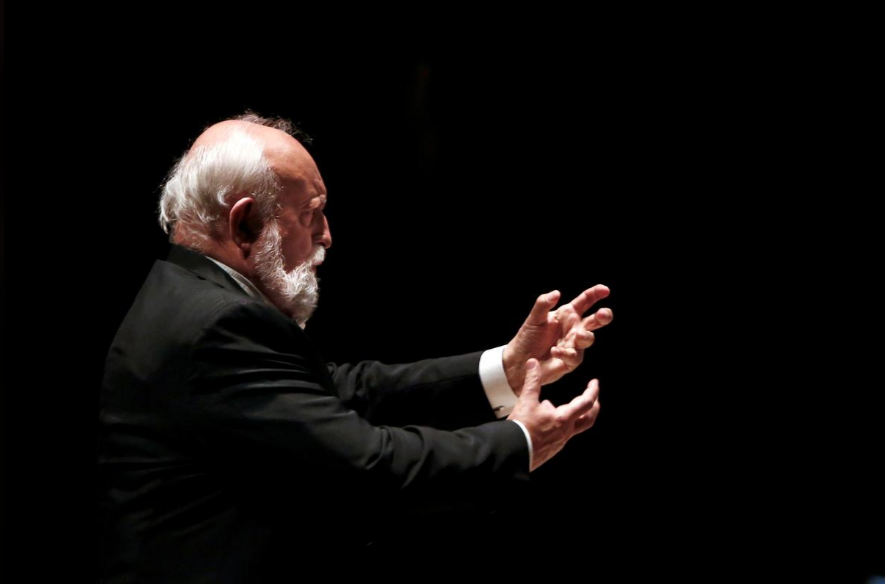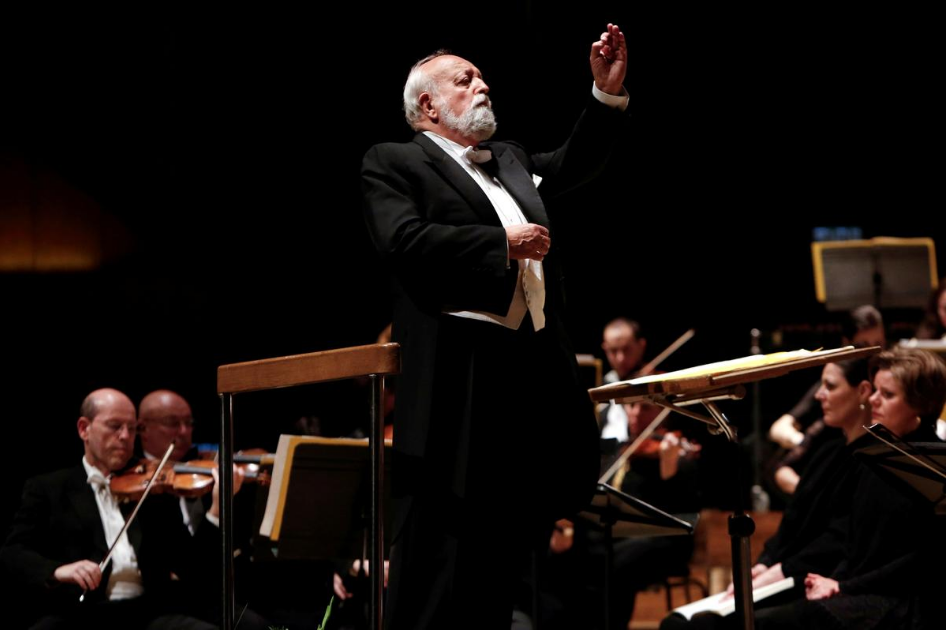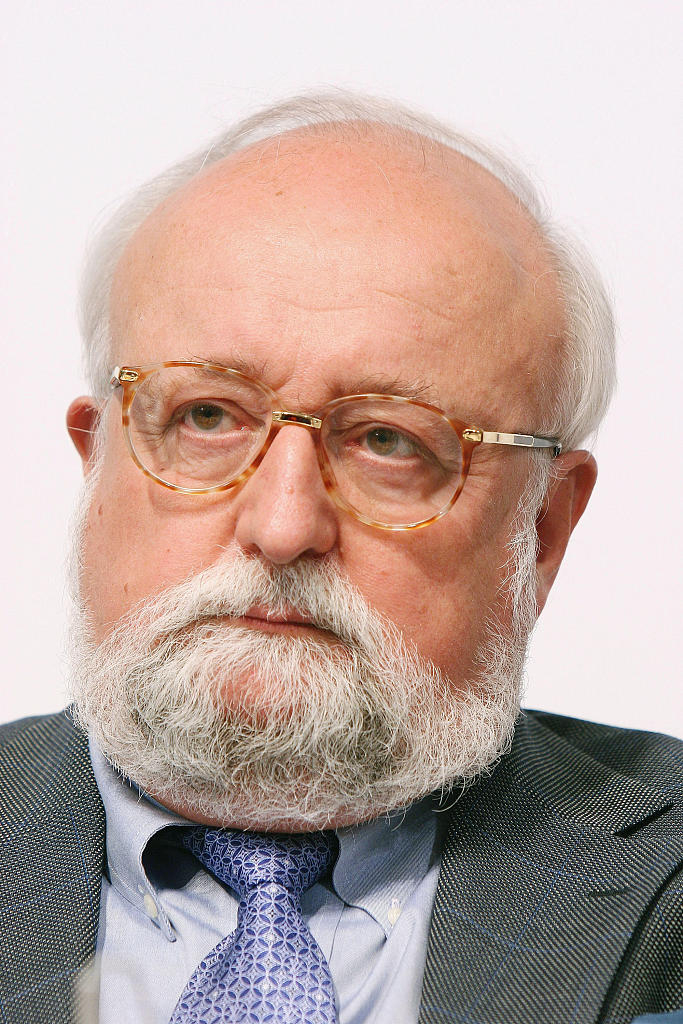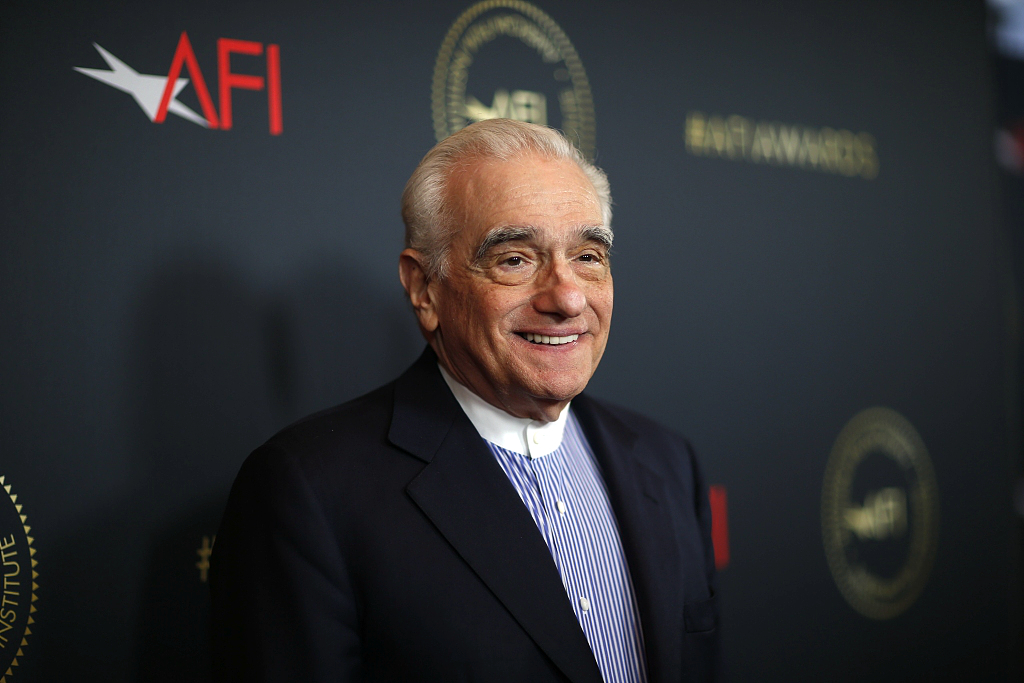
Krzysztof Penderecki conducts the Israel Philharmonic Orchestra during a performance of his Polish Requiem in Tel Aviv, February 12, 2014. /Reuters
Krzysztof Penderecki conducts the Israel Philharmonic Orchestra during a performance of his Polish Requiem in Tel Aviv, February 12, 2014. /Reuters
Poland's Krzysztof Penderecki, one of the world's most celebrated composers, died on Sunday at the age of 86, said the Polish Press Agency.
"After a long and serious illness, Krzysztof Penderecki - one of the greatest Polish musicians, a world authority in the field of classical music died," Poland's Ministry of Culture said in a tweet.
Penderecki was known for his film scores, including for William Friedkin's "The Exorcist", Stanley Kubrick's "The Shining" and David Lynch's "Wild at Heart", for his Threnody for the Victims of Hiroshima, and the largely atonal St Luke's Passion.
He won four Grammy awards for his music, most recently for best choral performance in 2016.
A witness to harrowing history
Born on November 23, 1933, in the southern city of Debica, Penderecki attended the Academy of Music in Krakow and simultaneously studied philosophy, art history and literature.

Krzysztof Penderecki conducts the Israel Philharmonic Orchestra during a performance of his Polish Requiem in Tel Aviv, February 12, 2014. /Reuters
Krzysztof Penderecki conducts the Israel Philharmonic Orchestra during a performance of his Polish Requiem in Tel Aviv, February 12, 2014. /Reuters
He then combined his career as an avant-garde composer with that of a teacher of composition at various top music schools around the globe.
As a conductor, he gave concerts with the most acclaimed symphony orchestras in Europe and the United States and became a member of several music academies around the world.
"In my musical microcosm, I brought together gains in the avant-garde with the great tradition of symphonic music of the 18th, 19th and 20th centuries," he once said.
One of the most influential post-war composers, Penderecki's music bears witness to the harrowing history of his native Poland in the 20th century.
"I have lived through very difficult times," the multi-award-winning composer once said in an interview, reflecting on the Nazi occupation of Poland in World War II and the Holocaust.

Penderecki's music academy in southeastern Poland. /AFP
Penderecki's music academy in southeastern Poland. /AFP
"When the Second World War started, I was only five but I still remember ... Being a witness ... I wanted people to remember what happened in our country and elsewhere," he said.
"You can't be an artist without having gotten to know tradition, without having digested the works of the past, without having studied the old masters in depth."
To achieve this goal, he founded a European academy of music bearing his name, around his country home in the southern village of Luslawice.
An avant-garde composer loved by Hollywood
Penderecki worked with symphony orchestras across the world and won fans among top film directors including Stanley Kubrick, Martin Scorsese and David Lynch.
His music appears in numerous acclaimed films and dramas, from Kubrick's "The Shining" and Scorsese's "Shutter Island," to Lynch's "Twin Peaks" and, more recently, in an episode of TV show "Black Mirror."

Polish composer Krzysztof Penderecki, award recipient (Music) of the 16th Praemium Imperiale, attends a press conference in Tokyo, Japan, October 20, 2004. /VCG
Polish composer Krzysztof Penderecki, award recipient (Music) of the 16th Praemium Imperiale, attends a press conference in Tokyo, Japan, October 20, 2004. /VCG
A key figure of the 1960s avant-garde, Penderecki remained respectful of great religious and symphonic traditions while blazing a trail in contemporary classical music.
The composer made use of unusual intervals, tone clusters and glissandi and used the timbres of instruments in innovative ways. Such techniques featured in "Threnody to the Victims of Hiroshima", a 1960 work for large string orchestra that won much recognition.
Penderecki did not shy away from unconventional effects: He used sheet metal, whistles, pieces of glass and metal rubbed with a file, rattles, electric sounds, saws, typewriters or alarm bells to add sonic texture to compositions.
He also invented music notation symbols to match his original means of expression.

Martin Scorsese is a fan of Penderecki's works. /VCG
Martin Scorsese is a fan of Penderecki's works. /VCG
Later, Penderecki gradually abandoned his avant-garde sound. Criticized by some in the musical community for backtracking, this evolution won him applause among non-specialists.
He returned to neo-tonal, post-Romantic writing, with a content and form more readily accessible to a larger audience.
"My music remains the same. Only the means (of expression) have changed," the Grammy-award winning Penderecki said.
In 2011, Penderecki collaborated with Jonny Greenwood, the lead guitarist of English rock band Radiohead, and the electronic music composer Aphex Twin – both fans of his work – on an album and tour.
(With input from agencies)